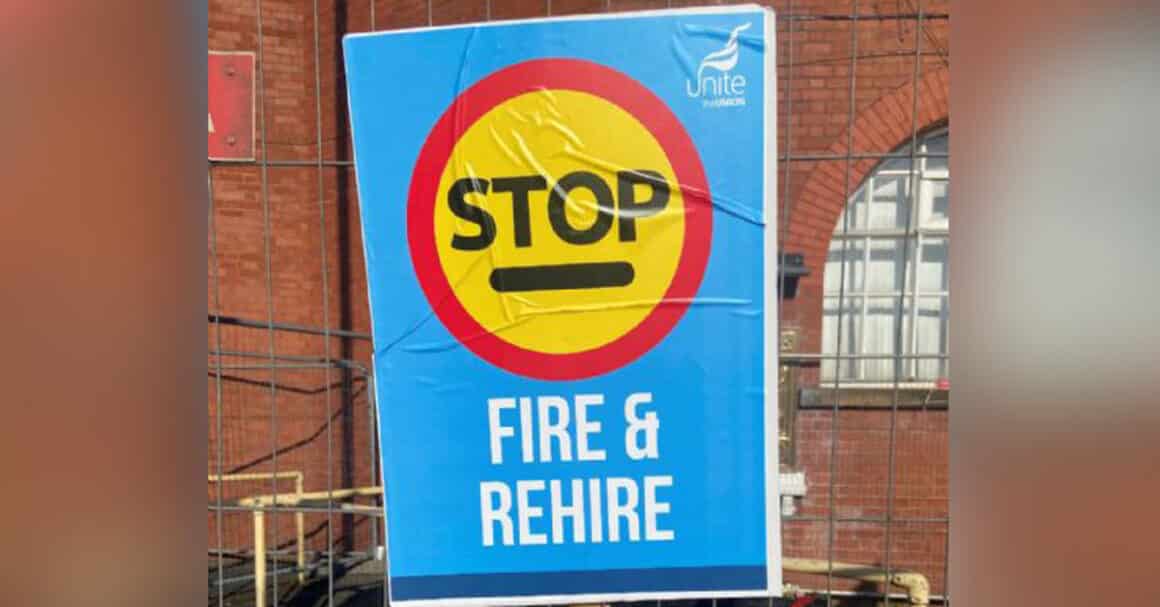

By Jeremy Dewar
This month the TUC will hold its first Congress under a Labour government since 2009. It offers a chance to place demands on Labour to wipe out the Tories’ anti-union legislation and restore workers’ rights. It is also an opportunity to mobilise millions of workers behind such a call.
However, this opportunity will be missed. The Fire Brigades Union (FBU) has the only motion (Motion 02) on the table that deals with this subject, but it is almost entirely aimed at the Strikes (Minimum Service Levels) Act, which came into force in the Spring. It only mentions the Trade Union Act (2016) ‘and other anti-union legislation’ in passing.
This makes the motion absolutely useless. Firstly, Keir Starmer has already stated that Labour will repeal this legislation and the government has instructed its departments and the metro mayors not to enforce it. It is pushing at an open door.
Second, and most importantly, the train drivers union ASLEF has already driven a locomotive straight through this Act, making the law a dead letter. When LNER threatened to be the first employer to use the new law, ASLEF responded by extending their one-day strike to five days. LNER quickly withdrew its threat, and no one has dared to use the law since.
‘Recommitting’ the TUC to its ‘longstanding policy for the repeal of all anti-union laws’ is also meaningless, since this so-called commitment has been gathering dust in the TUC offices since 1980, when Margaret Thatcher launched her first piece of legislation.
Why does it matter?
Anti-union laws have severely limited unions’ ability to mount effective strike action. From the 1960s to the ’80s, trade union militancy saw indefinite strikes called on the spot, solidarity action via flying pickets, and mass picketing.
Since Thatcher outlawed these tactics and defeated the miners (largely due to the TUC’s inaction), these methods have disappeared. Workers’ jobs, conditions and wages have suffered, and strike action has dropped to historically low levels.
The union leaders, a bureaucratic caste divorced from ordinary members’ working conditions by their privileges and high wages, have learned not only to live with these restrictions but even to enjoy the freedom they bring them. They use them to discipline militants—the ‘troublemakers’—and avoid costly strikes.
The worst of these laws are the ones that impose postal ballots and a long ‘cooling off’ period before the action, prevent others in the same industry or even parent company from coming out in solidarity and give bosses and police the power to break up picket lines.
New Deal
Deputy PM Angela Rayner has indicated that her workers’ new deal bill will repeal the Trade Union Act (2016). This odious piece of legislation introduced undemocratic thresholds for turnout (50%) and yes votes (40%) in strike ballots, which have repeatedly prevented large majorities from exercising their right to strike. Good, but this still leaves the main planks of the
anti-union laws in place.
Meanwhile the bosses are lobbying Labour hard and are likely to succeed in securing concessions on zero hours contracts, employment rights from day one, and employment rights for ‘self-employed’ and gig economy workers. So why is the TUC dampening down our demands and taking their foot off the pedal?
The rank and file of the unions needs to reinstate the movement’s full demands and mobilise in the workplaces, in the union branches and on the streets for Labour to:
Grant full rights and decent contracts for all from day one.
Legislate for the right to strike.